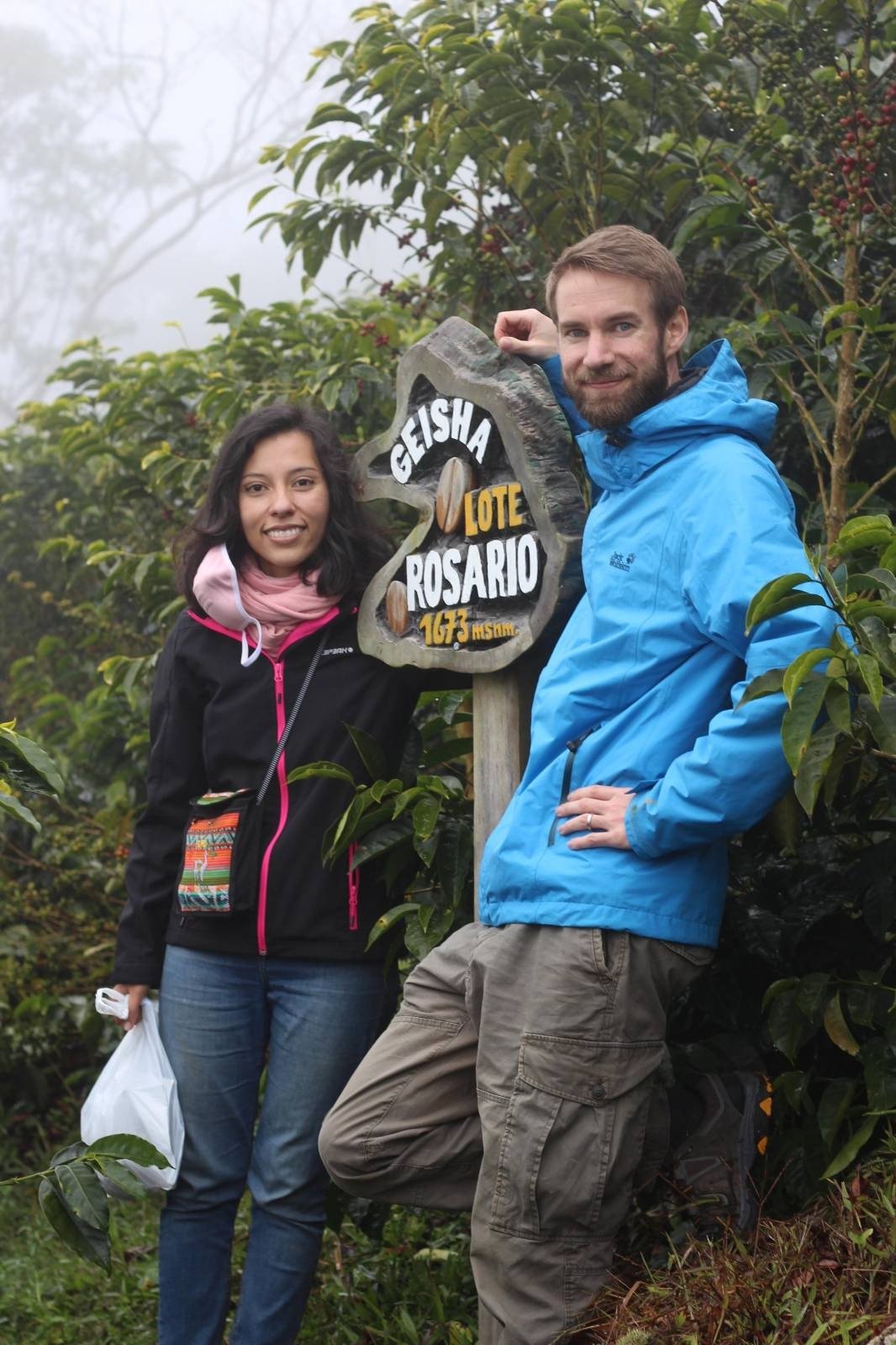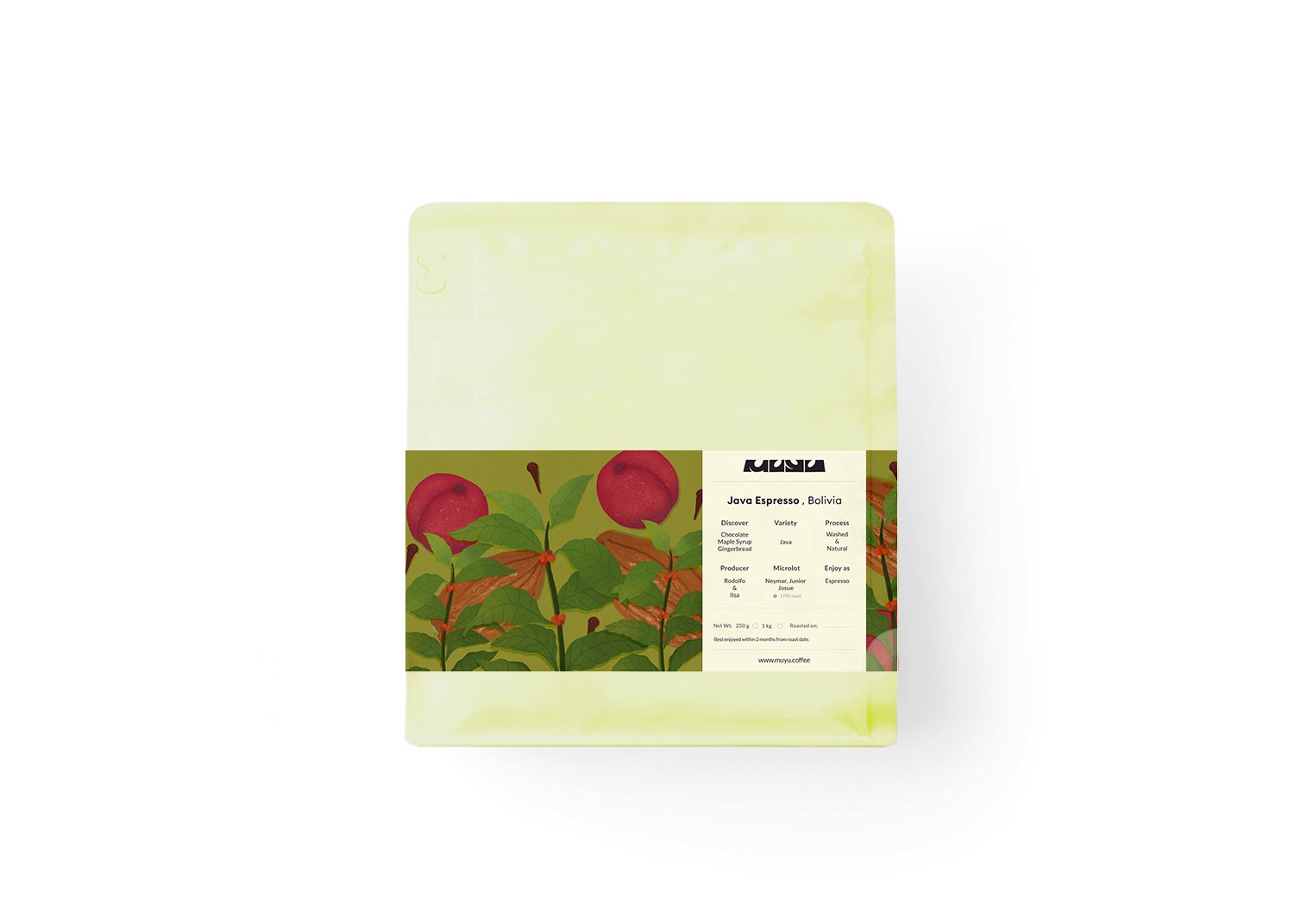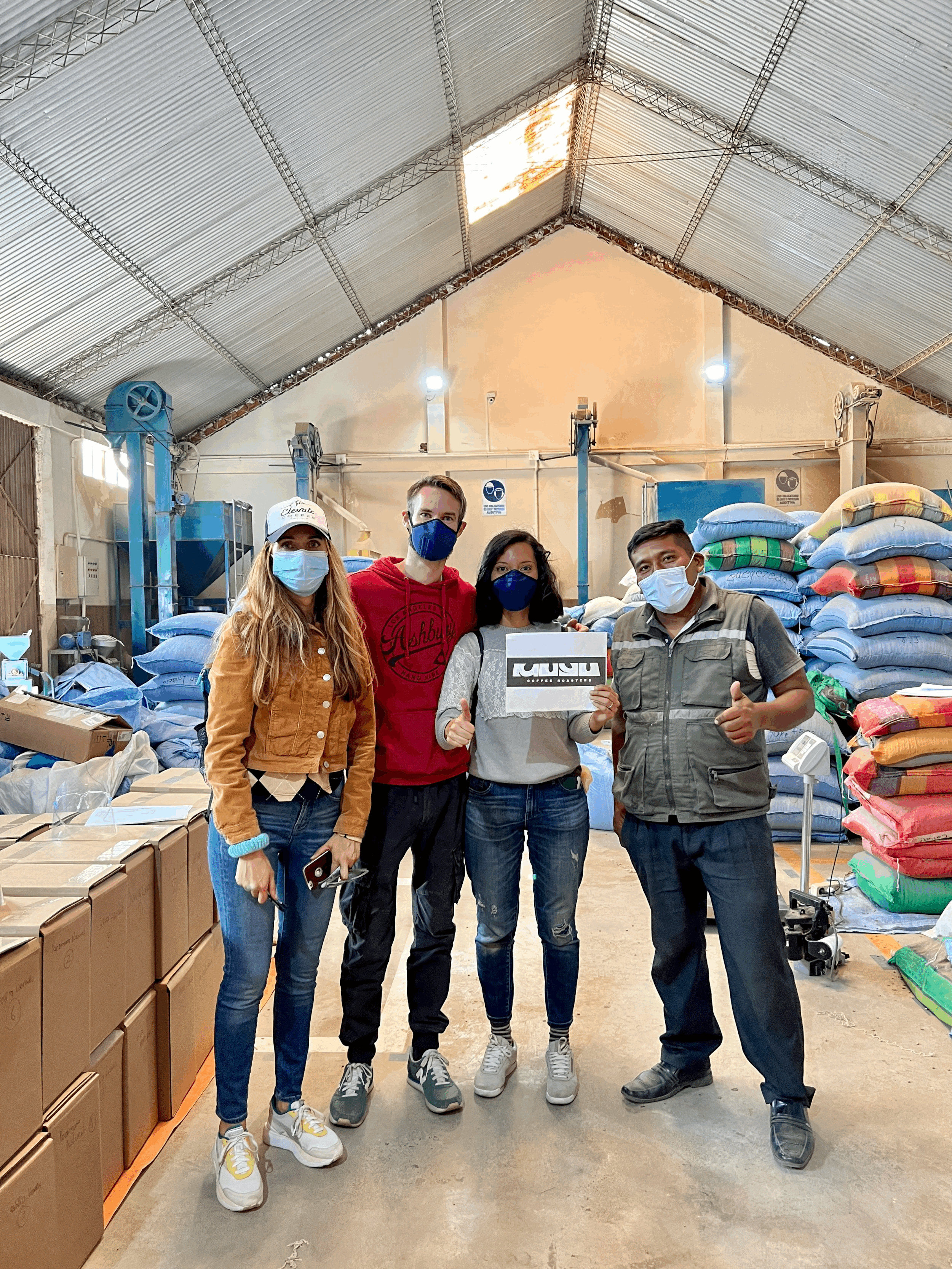Castillo Natural • Espresso • Chocolate Cake, Cherry, Rich
Discover notes of dark chocolate cake, cherry and marzipan. Enjoy the rich, smooth body coming from the natural process and pleasantly lingering cacao aftertaste. We developed this roast for espresso based drinks, either black or nicely combined with both milk or plant based alternatives.
Ideal for: espresso, flat white, americano and moka pot.
Discover notes of dark chocolate cake, cherry and marzipan. Enjoy the rich, smooth body coming from the natural process and pleasantly lingering cacao aftertaste. We developed this roast for espresso based drinks, either black or nicely combined with both milk or plant based alternatives.
Ideal for: espresso, flat white, americano and moka pot.
Discover notes of dark chocolate cake, cherry and marzipan. Enjoy the rich, smooth body coming from the natural process and pleasantly lingering cacao aftertaste. We developed this roast for espresso based drinks, either black or nicely combined with both milk or plant based alternatives.
Ideal for: espresso, flat white, americano and moka pot.
-
With a standard 9 bar espresso machines, don’t go crazy. This is an easily dialed in bean: 16-18 grams in, 32-36 grams out in 25-30 seconds, so your standard 2:1 ratio for espresso to get a nice balanced, vibrant cup with a pleasant, long lasting aftertaste, while keeping it sweet with a lower brew temp set at around 90-91 degrees (slightly higher if your machine has a more drastic fall in temperature while pulling shots).
Living in a town with harder water? Make sure to filter it down to under 80 ppm for best results when brewing coffee.
-
Variety: Castillo
Post harvest processing: Natural
Producer: Carmelo & Deisy (Finca Senda Salvaje)
Location: Loa, Caranavi Province, Bolivia
Elevation: 1750 maslNet weight: 250 grams or 1 Kg whole beans
Roasted for: Espresso -
This is the second time we asked Carmelo & Daisy to process a small batch of their Castillo variety for us, with a natural post harvest process by Deisy, Carmelo’s wife. Castillo is one of the five varieties grown at Finca Senda Salvaje, located in the Loa community, which you reach after a 2 hour drive from Caranavi, Bolivia and owned by the family of Carmelo and Deisy. While they experiment with different interesting processing methods, it was their first take on a natural dried coffee batch, which turned out delicious. Processing is done directly at the Finca, which at 1750 masl and a humid/cold microclimate adds even more layers of complexity and requires a very detail oriented care. In the natural processing method, the coffee cherries are dried in the sun on so called raised African beds as whole fruits, with the seeds still in their mucilage and skin, adding sweetness and body to the cup. Only when dried to the required level, the beans are bagged and brought to the dry mill in El Alto, at 4000 masl, where they are stored in perfectly dry conditions until hulled. Handling naturals in the dry mill requires special knowledge as those cherries are much harder to process, given the fact that the whole fruit is still on them, which makes it more difficult to extract the beans. We rely on the processing plant Nayra Qata to be in charge of the last steps before exporting, receiving the cherries from our producers, storing them, hulling, separating the green coffee by density and size, manually selecting out the defected beans, bagging and vacuum sealing the final product in 20Kg boxes to keep the coffee fresh and protected until we roast it here in Switzerland.
-
Sourcing directly at origin from small farmers, we are fully aware of the hard work that goes into the quality product we buy and the challenges their families face to earn their fragile livelihood. In this regard, coffee producing communities in Bolivia face additional challenges, due to the lack of infrastructure, financial support and difficult access to international freight routes. To fairly balance the relationship between roaster and producer we are price takers and as part of our long term commitment to a financially and environmentally sustainable coffee production in Bolivia, we factor these realities into the pricing.
For this 70Kg batch of specialty grade coffee, Carmelo and Deisy received 11,01 USD/Kg.














